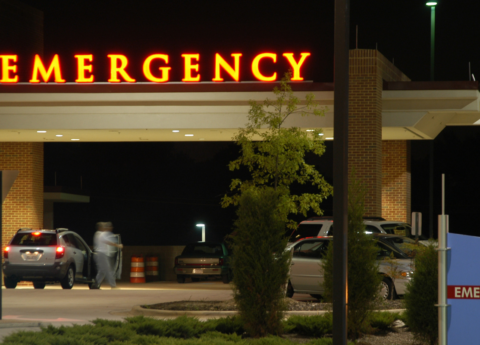Because the expansion of Medicaid and creation of a state health insurance exchange will provide health coverage to several hundred thousand people, Kentucky will have workforce needs associated with meeting the new demand for care. While that’s a short-term challenge, it’s also an opportunity to create more of the good jobs that Kentuckians need.
The Medicaid expansion is expected to make coverage available to up to 308,000 Kentuckians, while the exchange will offer insurance to another estimated 332,000. The Medicaid expansion alone will bring over $1.2 billion a year in additional spending in the Kentucky economy by 2015, creating over 15,000 jobs according to an analysis by the University of Louisville’s Urban Studies Institute.
That will create an immediate need to find the skilled workers that can fill those jobs, as described recently by the Courier-Journal and by Deloitte Consulting in a new report for the state. Even before health reform, the state had a workforce shortage in the health care sector. 49 counties are designated Health Professional Shortage Areas in primary care by the federal government, and parts of other counties also qualify. According to a study done last year by UK’s College of Agriculture, Kentucky’s growth in registered and licensed practical and vocational nurses, emergency medical technicians, physicians, health technicians, therapists and other health professionals is not keeping up with broader growth in the health care sector.
The Deloitte study estimates that even to meet existing demand Kentucky needs 5,635 more registered nurses (RN), or 12 percent of the RN workforce; 6 percent more licensed practical nurses; 30 percent more physician assistants; and 19 percent more mental health professionals. While the report identifies a severe shortfall in supply of physicians, it also notes that advanced practice registered nurses and physician assistants—who require less training—could play a greater role in providing some aspects of primary care, an idea supported by a recent Courier-Journal editorial.
Filling the health care workforce gaps will not be easy, but it’s a great opportunity in a state that struggles with high unemployment. A good portion of the jobs could be provided at community health centers and primary care clinics in the rural counties and poor communities that most need jobs. And many of the jobs provide a chance for workers to earn a decent living. By requiring some degree or credential beyond a high school diploma, they offer a better chance of employment and higher wages than other job options.
However, the state will need to ramp up its education and workforce development efforts to meet the challenge. New preliminary state data show a slight decline in the number of degrees and credentials awarded by the state’s colleges and universities in the most recent year. Rising tuition is likely a factor, as is the need for strategies that support students in completing their degrees and well-designed career pathways for students entering the health care sector. The Deloitte report specifically mentions the need for education programs that recruit and train health professionals from rural areas—as well as support programs for small practices in rural and underserved areas.
The weak economic recovery means that jobs are way too scarce in Kentucky, especially good jobs that allow families to make ends meet. Implementing health reform—and the workforce training that should go along with it—is one opportunity to make progress in that area.



